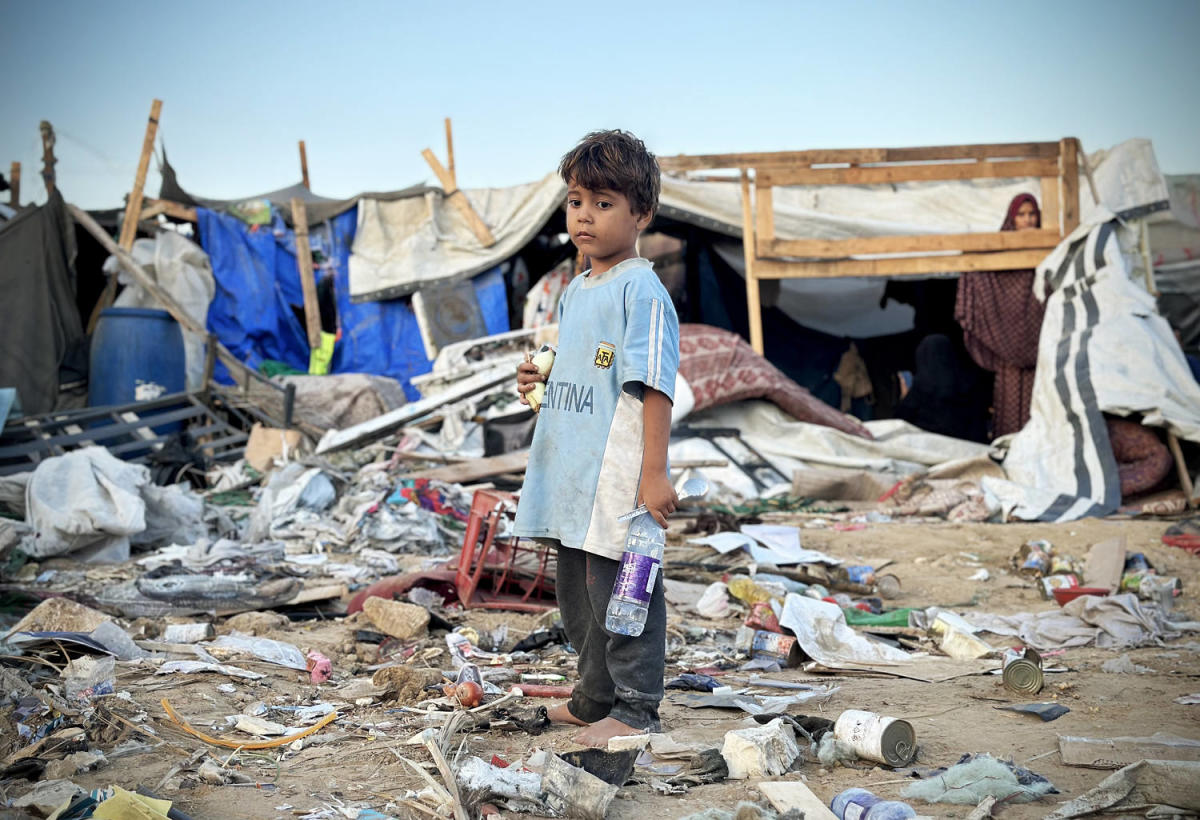Hamas’ hostage-taking and Israeli Prime Minister Benjamin Netanyahu’s increasingly hard-line public stance have complicated US efforts to broker a ceasefire in Gaza, a senior Biden administration official said.
“Ninety percent of this deal has been agreed,” but two major issues remain, the official said: the identity of Palestinian prisoners to be released in exchange for prisoners still held in Gaza, and the “regroupment” of Israeli forces in the enclave, with Netanyahu suggesting there will be no deal unless they can remain in an area known as the Philadelphia corridor.
The Israeli leader’s repeated public interventions have also made matters “more difficult,” the official said.
The senior official provided perhaps the most detailed picture of the negotiations yet, briefing reporters at a crucial moment: Netanyahu was sticking to his demands despite diplomatic pressure and angry domestic protests.
The US has been negotiating with Qatar and Egypt for months, hoping to reach a deal that would end Israel’s nearly year-long offensive in Gaza and secure the release of hostages held in the enclave since the October 7 Hamas terrorist attacks.
So far, the US has released only limited details about the talks, but the official said that given the aftermath of the hostage-taking and Netanyahu’s public comments that have drawn widespread criticism, the Biden administration felt compelled to shed light on “what’s actually on the table.”
Read more: What is the ‘Philadelphi Corridor?’
The briefing came after NBC News revealed that the families of American hostages held by Hamas have been pressuring the White House to seriously consider a unilateral deal with the militant group to secure the release of their loved ones.
The proposed agreement being negotiated makes no specific mention of the Philadelphia corridor, a narrow strip of land on the Gaza side of the enclave’s border with Egypt, the official told reporters.
Netanyahu has stressed at several press conferences this week that Israel must maintain a military presence in the corridor to prevent Hamas from using the border area, for example to smuggle weapons into Gaza.
The US official indicated that Netanyahu’s public comments had complicated matters, saying that “taking concrete positions during a negotiation is not always helpful.”
The US official shed new light on how the Philadelphia corridor debate affected the negotiations, saying that under the envisioned agreement, the first phase of a ceasefire included the withdrawal of Israeli troops from all “densely populated areas” in Gaza. But the official said a dispute had arisen over whether the corridor fell under that category.
The official said Israeli negotiators had spent the past two weeks drafting a proposal that would “significantly reduce” their presence along the corridor and that this would be in line with the agreement. But, the senior official said, “until you have a deal, you don’t have a deal.”
The official said the Philadelphia corridor was not the only sticking point. The exchange of Palestinian prisoners for hostages was also a point of contention, further complicated by the weekend’s news.
The killings sparked new fears among hostage families who had hoped their loved ones would be released in a ceasefire deal, and sparked widespread protests in Israel calling on Netanyahu to agree to a deal. But they also meant there were now “fewer hostages as part of the deal,” meaning fewer Palestinian prisoners would be released in return, the official said.
“It’s tragic and it’s horrible, and you know, it affects all of us,” the U.S. official said. But, the official said, “Until you have an agreement, the hostages are not coming home and the war is not going to stop.”
The killings “colored the discussions and brought a sense of urgency to the process, but it also called into question Hamas’s willingness to reach a deal of any kind,” the official added.
Israel’s foreign minister suggested as much on Thursday. “Anyone who coldly murders six hostages is not looking for a deal,” Israel Katz said. Right-wing National Security Minister Itamar Ben-Gvir said earlier this week that he was “working to stop negotiations with Hamas” after the hostage killings.
Hamas accused Netanyahu of trying to “thwart” negotiations. In a Telegram post early Thursday, the militant group said the Israeli leader’s insistence on keeping troops in the Philadelphia corridor was an attempt to prolong the standoff.
More than 40,000 people have been killed in the Gaza Strip since Israel launched its military offensive in the enclave following the Hamas attack, according to local health officials. Some 1,200 people have been killed and about 250 people taken hostage, according to Israeli officials.
Israeli officials say about 100 people are still being held hostage in Gaza, and about a third of them are dead.
This article was originally published on NBCNews.com
